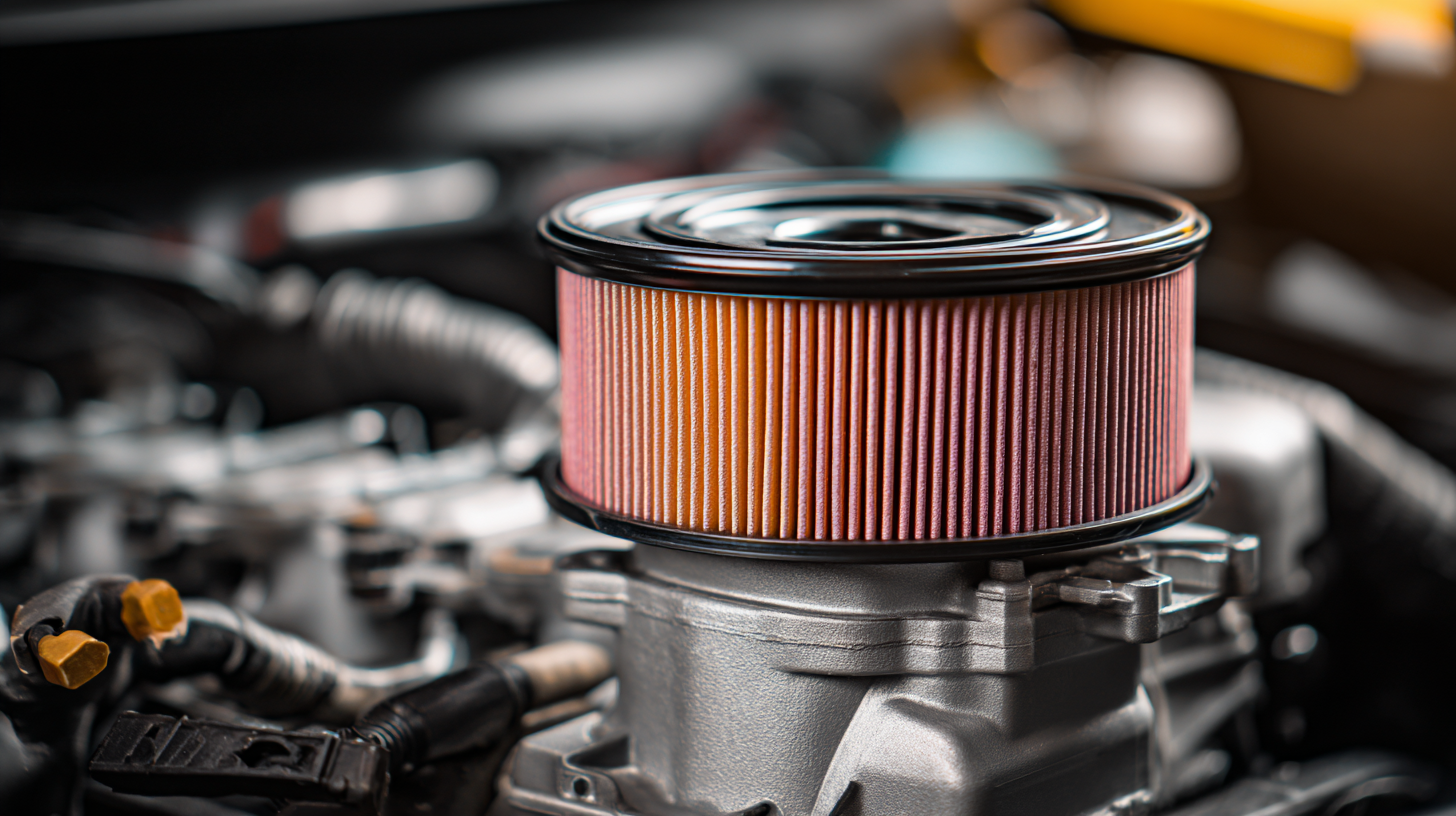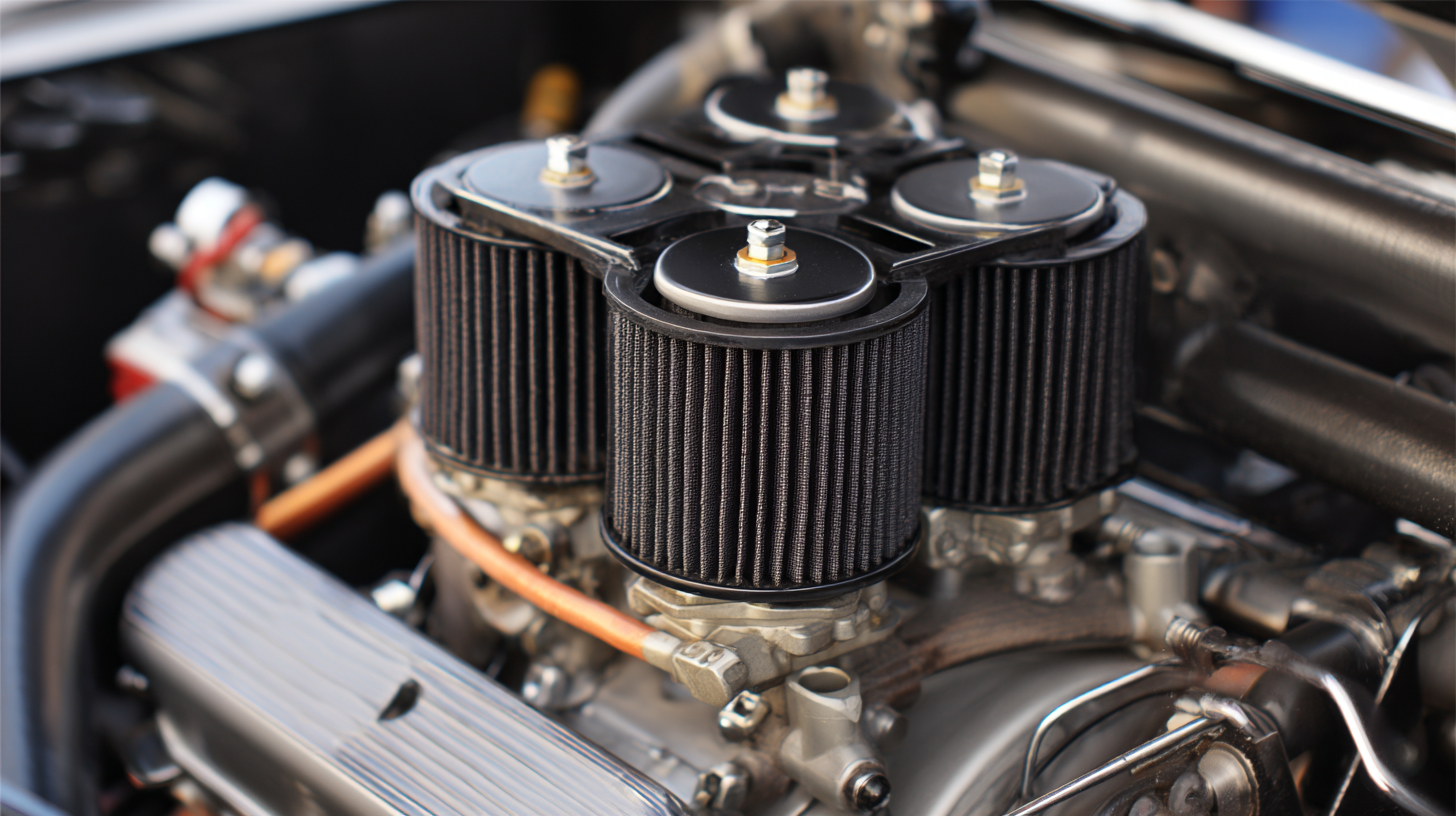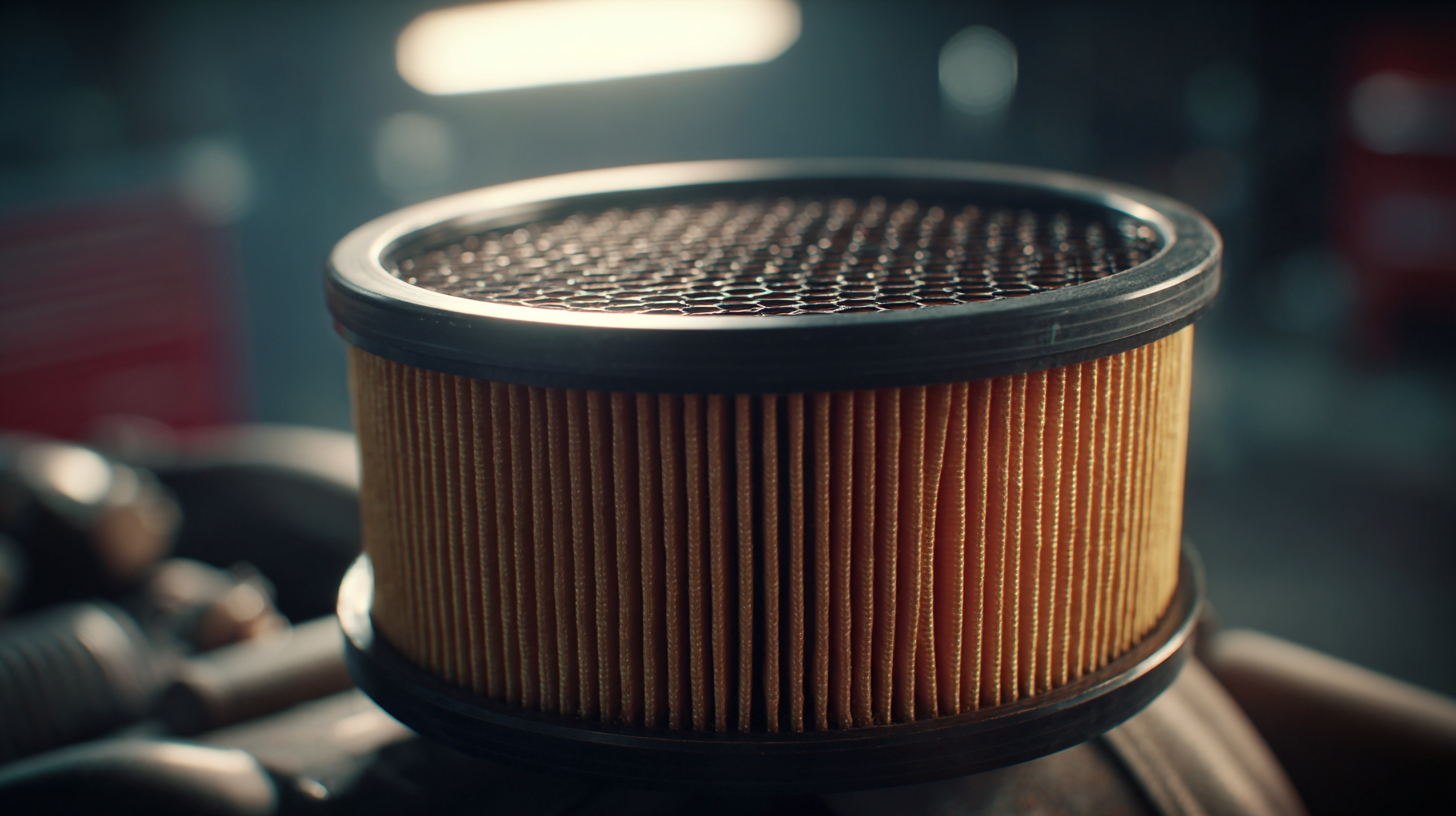Choosing the right auto engine filter is crucial for maintaining your vehicle's performance and longevity. According to the Automotive Aftermarket Suppliers Association (AASA), approximately 25% of vehicle owners neglect regular filter maintenance, which can lead to decreased fuel efficiency and increased emissions. The right auto engine filter not only ensures optimal air and oil quality but also enhances engine performance, reducing the likelihood of costly repairs in the future.

With the increasing complexity of modern engines and the variety of filters available on the market, selecting the appropriate filter can be overwhelming. Research from the Specialty Equipment Market Association (SEMA) highlights that using a compatible and high-quality auto engine filter can improve fuel economy by up to 10%. This blog will provide essential tips and insights to help you make an informed choice, ensuring your vehicle operates at its best while preserving the environment.
When selecting the right auto engine filter for your vehicle, it is essential to understand the various types available and their specific functions. The three primary categories of engine filters are oil filters, air filters, and fuel filters. According to a report by Markets and Markets, the global automotive filtration market is projected to reach $35.4 billion by 2025, driven primarily by the increasing demand for fuel-efficient vehicles that require high-quality filtration systems.
Oil filters are crucial for maintaining engine longevity by filtering out contaminants from the engine oil, while air filters protect the engine from dirt and debris, ensuring optimal air intake. Studies show that a clean air filter can improve fuel efficiency by up to 10%.
Fuel filters, on the other hand, are vital for preventing dirt and rust from entering the fuel system, which can lead to reduced engine performance and potential damage. With advancements in filtration technology, choosing high-quality filters can significantly enhance your vehicle's operation and maintenance. Thus, understanding these types helps in making an informed decision tailored to your vehicle's needs.
When selecting an auto engine filter, there are several key factors to consider to ensure optimal performance and longevity of your vehicle. Firstly, compatibility with your specific vehicle make and model is crucial. Always refer to your owner’s manual or consult with a trusted mechanic to obtain the correct filter type. Choosing a filter designed specifically for your engine will enhance its efficiency and help maintain proper airflow, which is vital for combustion and overall engine health.
Another essential factor is the filter's material and construction quality. Engine filters can be made from various materials such as paper, foam, or synthetic materials, each offering different levels of filtration and durability. High-quality filters are designed to trap contaminants more effectively and last longer, which can ultimately save you money on replacements and labor costs. Additionally, consider the maintenance schedule; some filters require more frequent changes than others, so it's worth reviewing your vehicle’s needs to prevent engine issues down the line.
| Key Factor | Description | Importance |
|---|---|---|
| Compatibility | Ensure the filter fits your specific vehicle make and model. | High |
| Filter Material | Different filters use various materials; consider efficiency and durability. | High |
| Manufacturer Recommendations | Follow guidelines from your vehicle's manufacturer for best performance. | High |
| Price | Consider the cost but ensure it doesn't compromise quality. | Medium |
| Installation Process | Assess if the filter is easy to install or requires professional help. | Medium |
| Service Interval | Check how often the filter needs replacement based on usage. | Medium |
Choosing the appropriate auto engine filter for your vehicle involves understanding its size and specifications. Engine filters come in various sizes based on the make and model of your car, which is critical to maintaining engine efficiency. According to a study by the Automotive Maintenance and Repair Association (AMRA), using the wrong size filter can reduce filter efficiency by up to 40%, potentially leading to engine damage over time.
To identify the right filter size, begin by consulting your vehicle's owner's manual or manufacturer specifications. Many manufacturers provide a filter size chart that can be highly useful. Additionally, measuring the dimensions of the old filter can give you direct insight into the required specifications. It's also beneficial to check state-of-the-art filters that may exceed OEM (Original Equipment Manufacturer) capabilities, enhancing performance and longevity.
**Tip:** When purchasing a filter, don’t just look at price; consider the quality and efficiency ratings. Brands that offer detailed filtration reports can ensure you're getting a filter that meets or exceeds industry standards. Also, ensure that the filter is compatible with both your vehicle and any performance enhancements you may have made. This step can add years to your engine’s lifespan while maximizing fuel efficiency.
When selecting an auto engine filter, it's crucial to consider the balance between quality and cost. High-quality filters play a vital role in ensuring efficient engine operation and compliance with stringent emission regulations. Research indicates that substandard filters can lead to a significant increase in harmful emissions, as they often fail to adequately trap pollutants like nitrogen oxides (NOx). This not only affects vehicle performance but also contributes to environmental degradation.

Many modern vehicles, particularly those equipped with direct injection (DI) gasoline engines, require advanced filtration solutions to meet strict governmental emission standards. According to industry reports, vehicles without high-efficiency engine filters can emit up to 40% more NOx than those with superior filtration systems. Investing in quality filters can prevent these emissions while enhancing engine longevity and reducing maintenance costs over time. Therefore, while cost is an important factor in selecting engine filters, the long-term benefits associated with higher-quality products make them a more economical choice for vehicle performance and compliance.
Maintaining optimal engine filter performance is crucial for your vehicle’s efficiency and longevity. Regular inspection of the engine filter is an essential part of vehicle upkeep. A clean engine filter ensures proper airflow and keeps contaminants out of the engine, which can otherwise lead to reduced performance and costly repairs. Depending on your driving conditions, it's wise to check your filter every 5,000 to 10,000 miles or during routine oil changes.

In addition to regular checks, replacing the engine filter at the manufacturer-recommended intervals is vital. A clogged filter can severely restrict airflow, resulting in sluggish acceleration and increased fuel consumption. When replacing an engine filter, ensure you choose one that meets your vehicle’s specifications. Moreover, consider investing in high-quality filters made from durable materials, which can enhance performance and offer better filtration. By following these maintenance tips, you will bolster your vehicle's efficiency and extend its lifespan.






